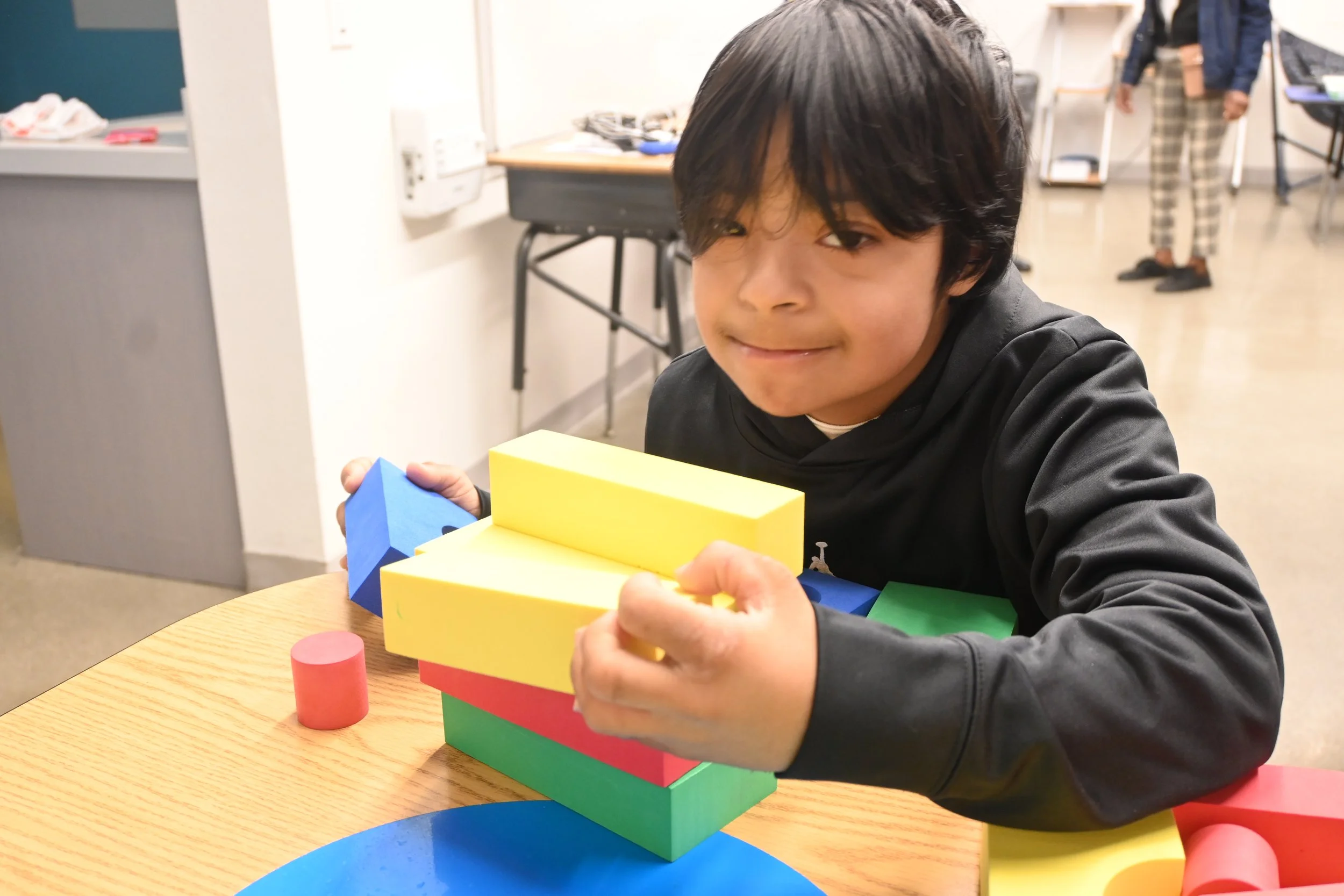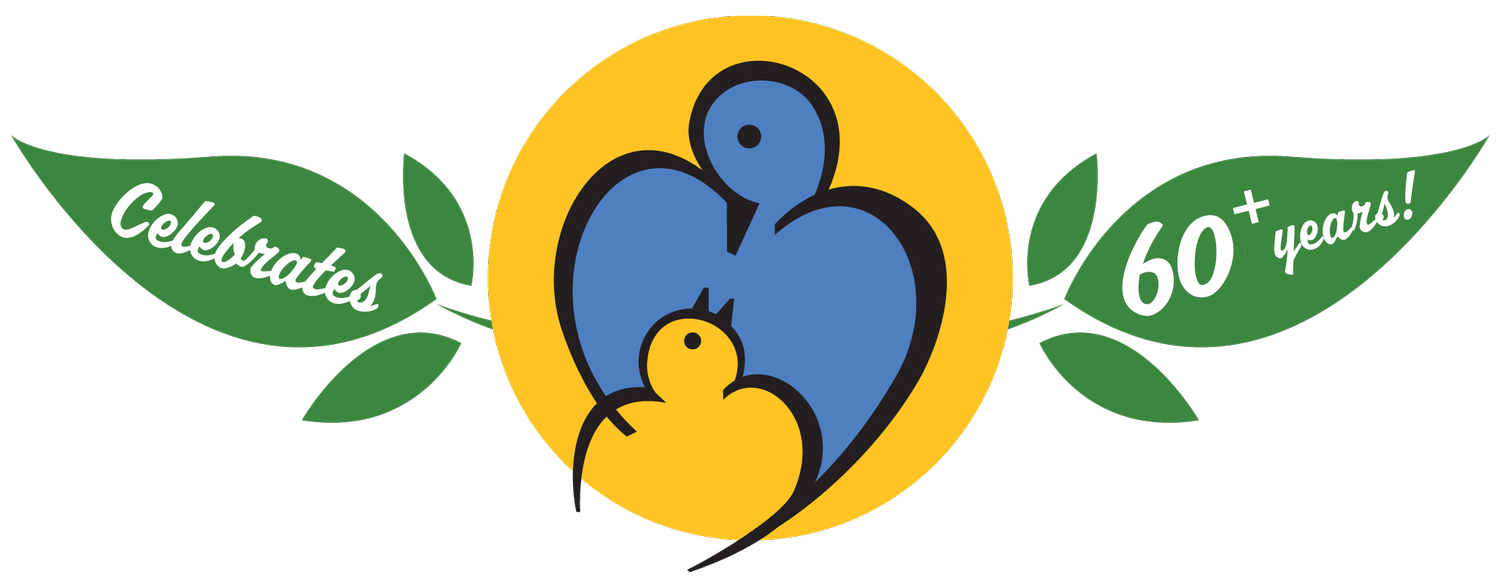
Villa Esperanza
School
Villa Esperanza School provides a multidisciplinary educational program serving students from 5-22 years old with high support needs associated with autism, cerebral palsy, Down syndrome, and other intellectual and developmental disabilities. Please contact us to learn more about our school.










Villa Believes In
-
At Villa, we recognize that every child has unique abilities and challenges.
We utilize positive behavior support to maximize each child’s educational experience.
-
Villa creates a safe and compassionate space for colleagues, family members, and caregivers.
-
Our year-round training incorporates current educational and behavioral practices.
-
Our approach to education addresses students’ social, emotional, and intellectual needs. In addition to direct instruction, we provide:
Speech & Language Therapy
Occupational Therapy
Behavior Intervention
Classroom Strategies
-
Community-based instruction
Nonviolent Crisis Intervention
DIR-Floortime Therapy
Naturalistic Teaching Strategies
Positive Behavior Supports
Sensory Integration
SEACO – Curriculum Guide
C.D.E. Core & Foundation Curriculum Content
Vocational Training
-
Visual supports, including social stories
Augmentative and Alternative Communication (AAC)
Graphic Organizers
More Information
-
All classrooms maintain a minimum of a 1 to 3 staff to child ratio.
One-on-one assistance is provided based per the Individual Education Plan and the IEP team.
-
Includes: Assessment and eligibility for special education services, age, strengths, present levels of performance, and behavioral challenges.
-
As a non-public school (NPS), Villa contracts with school districts and regional centers.
Private pay options are also available.
“I believe that the positive energy from our staff resonates profoundly with the students.”
— Ms. Santos, High School Teacher
-
Our elementary school students receive instruction in the areas of pre-academic and academic skills, communication with focus on receptive and expressive language, gross and fine motor abilities, social and emotional skill development, and self-regulation and transition skills.
Our classes provide a highly structured and specialized setting for children with intensive language, social, and behavioral support needs. At Villa, children learn to express their needs and wants verbally or by way of Sign Language as well as through Augmentative and Alternative Communication systems including iPads with Touch Chat and Proloquo applications. Teachers communicate classroom structure and expectations using diverse approaches that provide choices: morning meetings, picture schedules, timers to support transitions, and other teacher-directed communication methodologies.
Our language-based program focuses on social play, academics, independent and group work. Students receive individualized instruction to advance their knowledge and abilities in reading, writing, math skills and creative expression through the arts.
-
Our middle school students are instructed in communication, daily living and functional academic skills necessary to enhance independence.
Intermediate Academic Level serves students whose Individualized Education Plan (IEP) reflects an academically-oriented program in addition to the development of life skills. The curriculum emphasizes language and math skills and critical thinking. Emphasis is on developing the functional and cognitive abilities needed to increase students’ independence and participation, maximizing opportunities to employ the concepts they learn in school at home and in the community.
Intermediate Life Skills serves children whose IEP specifies a focus on life skills. Academic skills will be addressed on an individual basis as specified in each child’s IEP, providing a highly structured and specialized setting for children with intensive language, social and behavioral support needs consistent with autism and other developmental disabilities.
-
The High School program provides a structured environment focusing on social skills, behavior management, communication, functional academic skills and employment skills. Classes allow students to maximize their potential for independence, empowering them to transition into the community with a sense of accomplishment, ability and integrity.
Activities include community walks and outings to local stores and restaurants, operating our Student Store, lunchtime food service, jobs in our campus library and snack cart, and independent-living skills like meal preparation and laundry. These opportunities provide specific vocational skills, increase daily living skills, and apply functional academic skills.
Priority skill areas are identified through the Individual Transition Plan, Individual Education Program, assessment, and interest surveys. These areas are then addressed in the classroom through in-class, on-site, and community instruction and activities.
As a part of a meaningful adult life, recreation is also taught and practiced. Activities include sports and clubs, libraries, community centers and parks, and on-site social gatherings.
Life Skills High School Program serves teens and young adults ages 15 – 22 whose Individual Education Plan (IEP) reflects a life skills and pre-vocational driven curriculum. The classroom emphasis is placed on developing necessary functional academic, pre-vocational, social, behavioral, and community skills to transition into adult life.
Transition High School Program serves teens and young adults ages 15 – 22 whose IEP reflects a functional academic, vocational, and life skills driven curriculum. The classroom emphasis is placed on developing necessary functional academic, vocational, social, behavioral, and community skills to gain employment and transition into adult life.Students will also work with Villa’s new Student Services program to increase their opportunities to prepare for and access employment.
Vocational High School Program serves teens and young adults ages 15 – 22 whose IEP reflects an academically and vocationally driven curriculum. The classroom emphasis is placed on developing necessary academic, vocational, social, behavioral, and community skills to gain employment and transition into adult life.
Through Villa’s Student Services program, students can access counseling to build on their interests and skills, in addition to workforce preparation, job training, and sponsored paid work experience or volunteering.
Meet Your Principal
“Children thrive in classrooms and communities where they experience acceptance, connection, and respect,” says Robyn Reagan. A lifelong advocate for children who struggle to make their gifts and needs known, her first role model was Annie Sullivan, teacher and friend to Helen Keller. “In my work and training,” states Robyn, “the ABCs stand for All Behavior Communicates. I love seeing the gleam in a student's eyes when they succeed at something they couldn't do before.”
Robyn has been improving systems and supports for children, youth and families for over 25 years. With experience in Special Education ranging from K-12 and from public school campuses to residential settings, she has provided leadership and professional development for educators, administrators, and parents. Robyn’s impact is widespread. She still hears from a parent whose child was considered too low-functioning for an augmented and alternative communication device (AAC). Robyn and the mother included flashcards of letters and numbers after his behavior trials, and he was recently published in a national poetry contest for high school students. She is fully committed to challenging perceived limitations of people and systems and finding creative ways to move forward.
One of Robyn’s mother's favorite poems was "Hope is the thing with feathers," by Emily Dickinson. Robyn shares, “That Esperanza means hope and our logo is two birds makes my work here a tribute to the resilience and values she passed down to me.”
Robyn S. Reagan, MA
Vice President of Special Education Services
(626) 449-2919 ext. 117
Meet The Team
Sherna Pinnock
Curriculum Specialist
(626) 449-2919 ext. 155
Terri Reed
Administrative Supervisor
(626) 449-2919 ext. 158

Villa School Inquiry
Visit Us
Villa Esperanza School
2116 E. Villa Street
Pasadena, CA 91107
If you are interested in touring, enrolling, or receiving more information,
please contact:
Robyn Reagan, MA
Vice President of Special Education Services
(626) 449-2919 ext. 117














